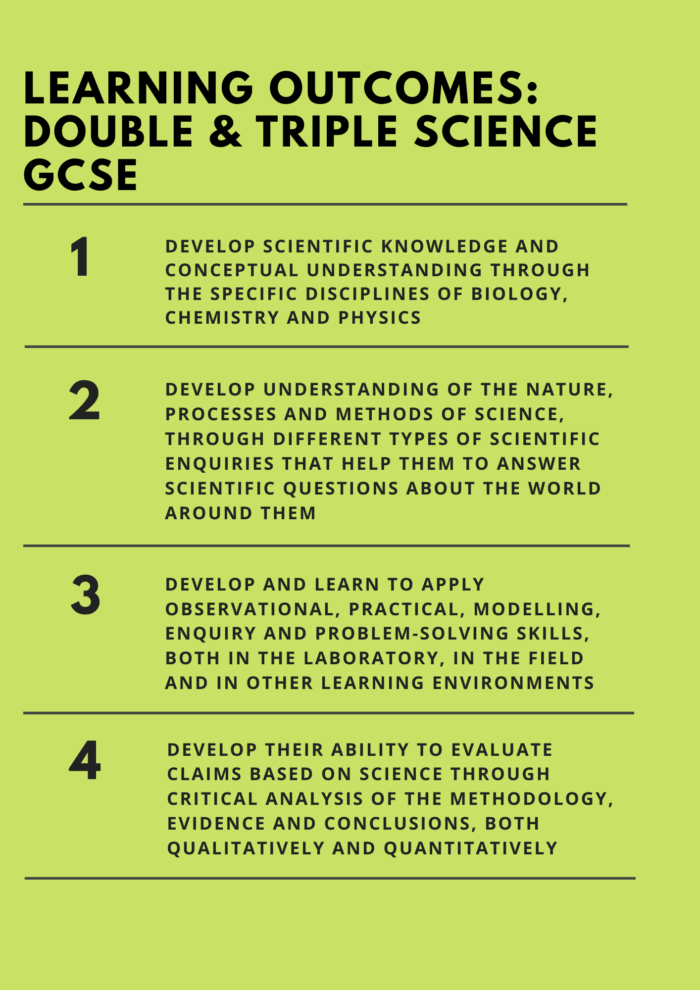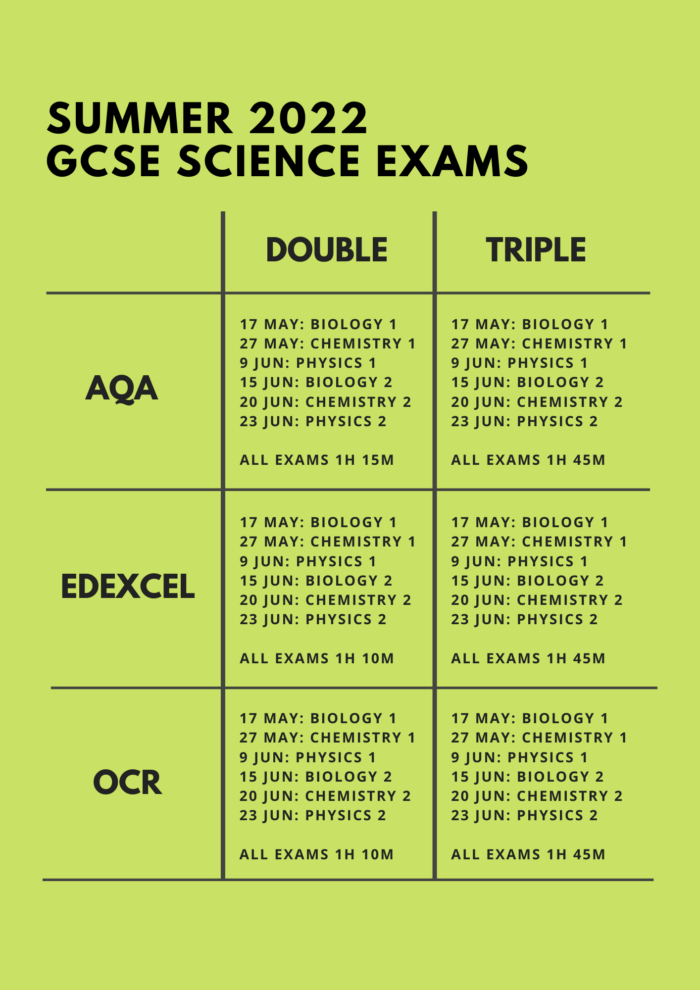
Every year students and parents around the country are confused by the options the Science GCSEs present. The main culprit is Double Science GCSE which is where students study all three Sciences. Still confused? Let’s investigate further.
Double Science GCSE is also known as ‘Combined Science’. All three Science subjects are studied: Biology, Chemistry and Physics. However, students receive two GCSEs, hence ‘Double’. The course covers two thirds of the Triple Award Science content.
The Department for Education lays out the GCSE Double Award specification, key aims and learning outcomes. The learning outcomes are the same for both Double and Triple Science. The difference is how much depth you go into per Science. We advise comparing this specification with that of Triple Award Science if you’re choosing between the two Science GCSEs.

Now we know about GCSE Double Award Science, let’s take a look at the Triple Award. In Triple Science students study for three separate GCSEs: Biology, Chemistry and Physics. Also known as ‘Single Sciences’ or ‘Separate Sciences’, students receive three GCSEs as they cover all three units of each Science.
Triple Science goes into more depth per single Science. More subject material, particularly in the Chemistry and Physics units means more Maths. So students need to take that into consideration when making their choice on which course to study.
Students taking both Double and Triple Sciences across all exam boards, (AQA, Edexcel and OCR), sit a total of six papers, two per Science. Here’s the Summer 2022 exam timetable for the exam boards mentioned above:

There are ‘Foundation Tier’ and ‘Higher Tier’ papers for each of the Science subjects. Your teachers help you decide which exams to enter you for according to the level you have been working towards in school. Once this is decided you sit all six papers of the same tier.
Foundation Tier – For students aiming for Grades 1-5
Higher Tier – For students aiming for Grades 4-9
This depends on a number of factors, so we’ve made a Pros and Cons list to help you:
• If Maths isn’t a student’s strong suit there’s less challenging material to cover in the Chemistry and Physics units of the Double Science pathway.
• If a student is unlikely to study Science at A level they might choose not to go into so much depth at GCSE. So Double Science GCSE might be the best option in this instance.
• Students receive two identical grades for Combined Science GCSE. This is based on their overall performance across all three Sciences, including practical work. So if a student is strong in Biology and Physics but weaker in Chemistry this can help bring their overall grade up.
• Students wanting to do A level Science might find that they miss out on some areas that bridge the gap between GCSE and A level Science. So there may be some additional material to catch up on at the start of an already demanding A level course.
• Double Science students who want to pursue Science at University and for a career are at a disadvantage. The entry requirements differ for universities, so check them well in advance of choosing your GCSE options. Some universities, such as The Russell Group are looking for students who have Triple Science GCSE.
• Triple Science GCSE is favoured by Sixth Form Colleges and Universities if you are planning on studying a Science subject. Choosing Single Sciences demonstrates students’ interest and passion for the subject.
• Triple Science gives you an advantage at A level if you’re studying a Science subject. The course is more in-depth and acts as a bridge between GCSE and A level knowledge.
• High achieving Science students are likely to find Triple Science GCSE stimulating and challenging. If students are scoring highly in classwork they should consider taking Separate Sciences to extend their Scientific knowledge.
• Many people don’t realise that a student’s level of literacy is something to consider when taking Triple Science. Students sitting the Higher Tier papers are asked to answer long form, essay style questions. If written communication isn’t a strength, this is something to take into account when making a choice.
• There’s a lot more content to cover in Triple Science. This is something to think carefully about in conjunction with the student’s other GCSE options in order to cultivate the best balance.
• If the student isn’t enthusiastic about Maths and Science then taking Separate Sciences at GCSE might be an uphill battle. Student’s need to be committed to be able to cover all of the material which is more demanding than the Double Science option.
Happy choosing!
Related:
GCSE Science Revision that Works
How to Revise for Maths GCSE
Science Tutor: Getting Students into Science